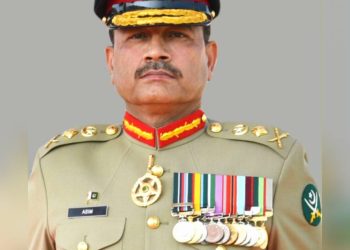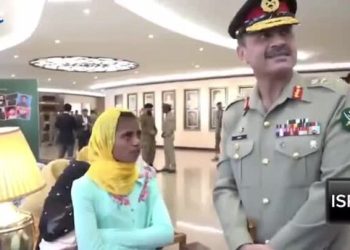An icon of disputed Kashmir’s resistance against Indian rule and a top separatist leader who became the emblem of the region’s defiance against New Delhi, Syed Ali Geelani died late Wednesday. He was 92.
Syed Ali Geelani was born on September 29, 1929 in a village on the banks of Wular lake in the Sopore area of Kashmir’s Baramulla district, according to Anadolu Agency.
He remained a staunch opponent of India’s illegal occupation of Jammu and Kashmir and lead the Kashmiris’ struggle for their right to self-determination.
Since his youth, Geelani had been a member of Jamaat-i-Islami, the largest political-religious organisation in Kashmir that was banned by the Hindu nationalist government in 2019.
Later on, he founded his own party by the name of Tehreek-e-Hurriyat.
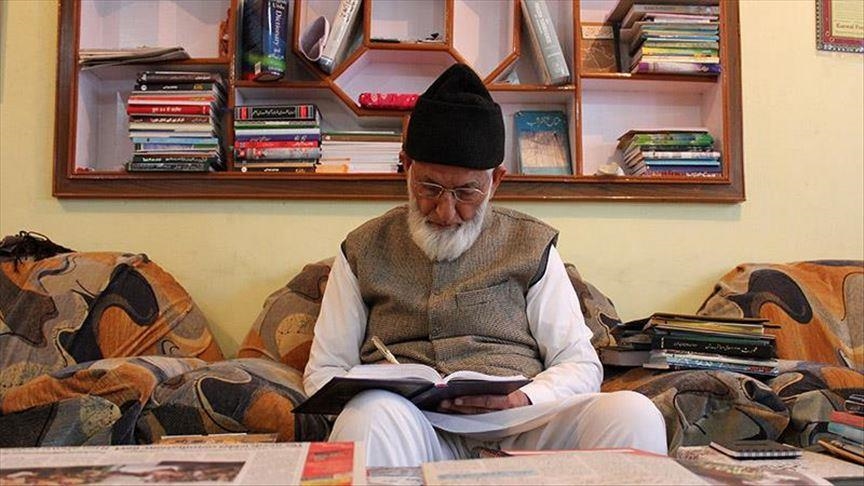
Geelani had been a thorn in India’s side since the early 1960s when he began campaigning for the territory’s merger with Pakistan. He also pursued his separatist calls as a member of the Kashmir assembly, from the Sopore constituency of Jammu and Kashmir, elected three times — 1972, 1977, and 1987.
The veteran politician was jailed for nearly 10 years after 1962 and often restricted to his home after that.
He also served as the Chairman of All Parties Hurriyat Conference, a forum of freedom parties in Jammu and Kashmir, from which he stepped down last year.
Geelani had been a thorn in India’s side since the early 1960s when he began campaigning for the territory’s merger with Pakistan.
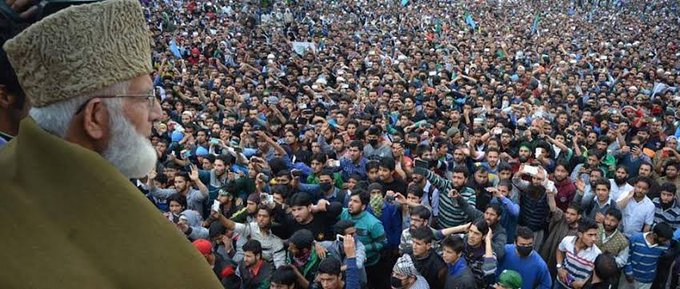
He also pursued his separatist calls as a member of the Kashmir assembly.
The veteran politician was jailed for nearly 10 years after 1962 and was often restricted to his home after that.
Since his youth, Geelani had been a member of Jamaat-i-Islami, the largest political-religious organisation in occupied Kashmir that was banned by India’s Hindu nationalist government in 2019.
He rejected any notion of direct talks with the New Delhi government unless it formally “accepts Kashmir as a disputed territory” and stopped describing the region as an “integral part of India”.

Indian-occupied Jammu and Kashmir is one of the world’s most militarised zones, with more than 700,000 Indian security forces deployed in the region.
Tens of thousands, mainly civilians, have died since an insurgency erupted in 1989.
India has been struggling to bring normal life back to Kashmir after it canceled the region’s semi-autonomous status and divided it into two centrally controlled territories in August 2019.
A security clampdown imposed at the time saw mobile internet services cut for more than a year. Scores of political leaders were detained and many are still not free.
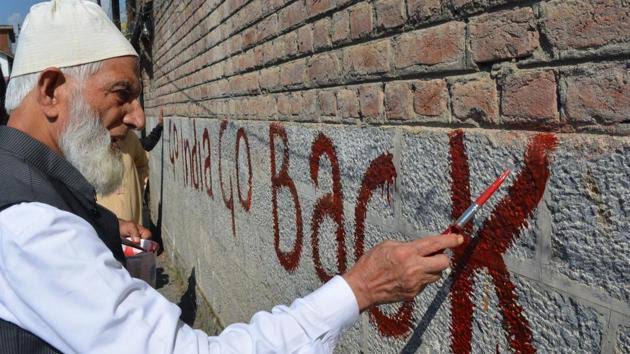
Geelani, an Islamist author and a fiery orator, began his career as a schoolteacher and later joined Kashmir’s biggest religious and political party Jamat-e-Islami in the 1950s. He contested elections three times for local governance but resigned as a lawmaker to join the anti-India campaign in the late 1980s, becoming the face of Kashmiri resistance until his death.
He spent nearly 15 years in various Indian prisons and was also part of the All Parties Hurriyat Conference, a conglomerate of various Kashmiri political and religious groups that was formed in 1993 to spearhead a movement for the region’s right to self-determination. The group used civil disobedience in the form of shutdowns and protests as a tactic to counter Indian rule.
In August 2019, when India stripped the region’s semi-autonomy, Indian authorities harshly clamped down on the group’s leaders, detaining scores of them and barring them from leading public protests.

A sainted figure in Kashmir, Geelani’s popularity catapulted to near reverence after 2008, when the region witnessed mass civil uprisings and he emerged as a prominent resistance leader among the new generation of Kashmiris. In the years that followed, hundreds of youths were killed by Indian forces in street protests.
As civilian defiance against Indian rule picked up, Geelani, along with two other top anti-India politicians, Yasin Malik and Mirwaiz Umar Farooq, who remain under detention, formed Joint Resistance Leadership in 2016. The group challenged India’s sovereignty over Kashmir and sought to give direction to people’s anger.
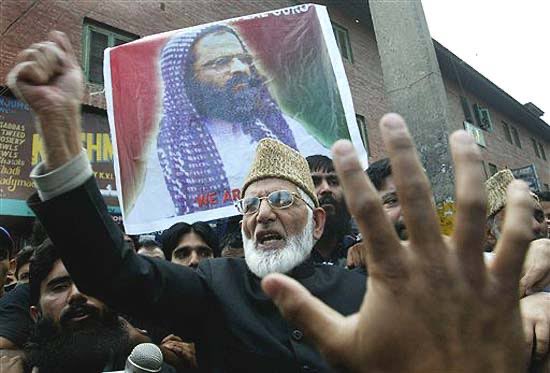
During Kashmir’s recent years of civilian protests, the slogan “Na Jhukne Wala Geelani! Na Bikne Wala, Geelani! (Geelani, the one who doesn’t bow and can’t be bought!)” became almost a war cry on the streets. He was widely venerated by Kashmiris, who gave him the moniker of “Bub,” which means “the father.”











































